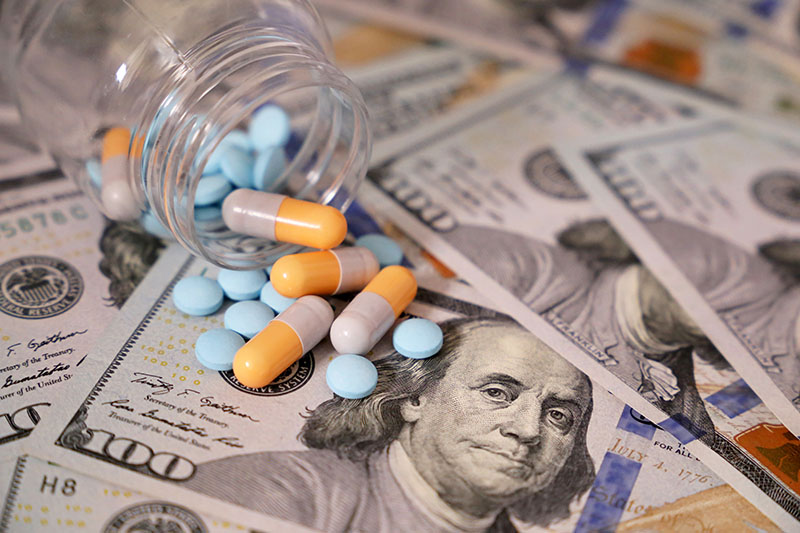Updated April 2025
High drug prices can be a problem for every American whose health condition requires medication. However, older people are disproportionately affected by high drug prices. While about half of all Americans between the ages of 30 and 49 report taking prescription medications, 89% of Americans who have reached the age of 65 use prescription drugs.
At the same time, older Americans often lack the financial resources to pay for drugs, even when they have insurance that covers part of the cost. Of those who reported taking prescription drugs, 23% of seniors said they had difficulty affording the cost of those medications. Seniors who lack adequate drug coverage sometimes delay or skip taking medications that could improve their health.
Drug Price Negotiations
Congress enacted the Inflation Reduction Act in 2022. A key component of that law is designed to help seniors by reducing drug prices for individuals insured by Medicare. The Act empowers the Secretary of Health and Human Services to negotiate prices for certain expensive drugs covered by Medicare Parts B and D. Most prescriptions filled at pharmacies are covered by Part D, while specially formulated drugs dispensed by healthcare providers (such as chemotherapy treatment) are covered by Part B.
Prices are being negotiated in four stages. Results of the first stage of negotiations were announced in August 2024. The negotiated prices for the ten selected drugs will go into effect in 2026. The second stage of negotiations will involve 15 drugs and the negotiated prices will take effect in 2027. All drugs addressed in the first two stages are covered by Medicare part D. Renegotiated prices of another 35 drugs covered by Medicare Parts B or D will take effect in 2028 or 2029.
The negotiations involve widely prescribed drugs that have been on the market for years without generic competition. Prices have already been negotiated for the popular blood thinners Eliquis and Xarelto, the blood cancer medication Imbruvica, and Januvia (a medication for diabetics that reduces blood sugar). Immune therapy treatments for cancer are among the Part B medications that are subject to price negotiation.
Negotiated price reductions have been substantial. For example, the cost of Eliquis that seniors pay under Medicare Part D was reduced by 56% from the drug’s list price, while Xarelto was reduced by 62%. There is still some risk that drug companies will evade the law by authorizing limited (and largely illusory) generic competition for some profitable drugs, thus depriving HHS of the power to negotiate their prices. At this point, however, the law seems to be working as intended.
Inflation Protection
Drug companies might also try to game the system by raising prices before they are forced to negotiate lower prices. The Inflation Reduction Act attempts to counter that risk by penalizing drug companies that increase Medicare drug prices above the rate of inflation. Drug companies will be required to pay the government the difference between the price charged and the inflation rate for all Medicare sales of a covered drug.
Price increases exceeded the inflation rate for 23 of the 25 drugs that resulted in the highest Medicare Part D spending between 2018 and 2019. While the pharmaceutical industry argues that it needs high profits to develop new drugs, the evidence suggests that the industry invests in the most marketable drugs, not necessarily those that offer the best solutions to public health problems. Limiting price increases on Medicare drugs to the inflation rate is not likely to stifle innovation in the nation’s most profitable industry.
Out-of-Pocket Costs
The Inflation Reduction Act also addresses out-of-pocket costs that seniors pay on top of their Medicare Part D premiums. Seniors who purchase Part D insurance will not pay more than $2,000 per year in deductible and co-pay expenses. Prior to the Inflation Reduction Act, seniors could pay about $7,500 in out-of-pocket expenses for Part D drugs.
In addition, most vaccines will be free under Medicare. The new law also caps the cost of Medicare-covered insulin at $35 a month. Those price controls take effect this year.
(This article was reviewed April 2025 since it originally published August, 2022.)
